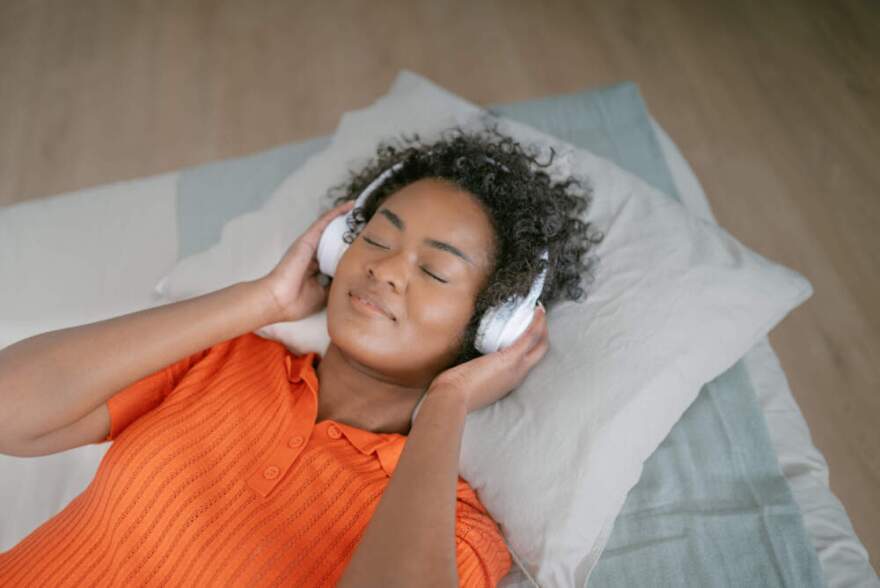
Music can be a powerful tool to help process complex emotions.
But music therapy — using music in a clinical setting to help with mental and physical health issues — goes far beyond just listening to music. Researchers say it can benefit patients with stress, anxiety and even Alzheimer’s disease.
“We are simply using live and recorded music to work on goals that don’t traditionally relate to music,” says Nicole Altimier, a board-certified music therapist at Cincinnati Children’s Hospital. “Music can have effects on all kinds of different things, right? Like your motor support, cognitively, socially, emotionally, physiologically. So those are sort of the different goal areas that music therapy can work towards.”
3 questions with Nicole Altimier
How does music therapy work?
“If you like to go for a walk or go to the gym, lots of times you’ll put in headphones or there’ll be music playing in the background, and that is similar to what you might see in a music therapy session. If somebody could benefit from motor support, we might play their favorite songs to help motivate them to move.
“One of the things that live music can address is help with decreasing pain and lowering heart rate, muscle tone, and helping with overall relaxation. Our bodies will naturally entrain to music, so that means our physiological functions will kind of match the beat and the rhythm of the music, and that can help with things like lowering heart rate and overall relaxing the body.
“If you are familiar or have heard of the Gate [Control] Theory of Pain, it is a theory that says our brains can only really focus on one thing at a time. And music can help close that gate to the perception of pain in our brain. So that could either be receptive, so that could be where patients are just listening, or it could be a more active route where they are playing the instruments themselves, too.”
What effect does music have on the brain?
“Music really lights up the entire brain and helps to create different pathways and connections from music to what they’re working towards non-musically. So if you’re thinking about self-expression, right? Giving them a modality to express themselves, either through playing music or listening to music, and analyzing the different components such as the lyrics and the rhythms.”
How can you use music as therapy without working with a music therapist?
“One of my favorite things actually to tell my patients and clients who are looking to use music on their own is to make playlists of your favorite music that resonates with a mood. So if you are looking to work out and feel energized, what are a list of songs that might help you feel that way? Or if you’re looking to relax, really being intentional about songs that do have more steady elements in the music, more steady tones and rhythms.”
“I think another way that people could use music to help them process is to do some song rewriting is what I like to call it, and collecting songs that are meaningful or resonate with you and really pulling out specific lyrics and phrases that have meaning to you and kind of rearranging them in a puzzle piece to make your own song.”
____
Samantha Raphelson produced and edited this interview for broadcast with Catherine Welch. Raphelson also adapted it for the web.
This article was originally published on WBUR.org.
Copyright 2025 WBUR
